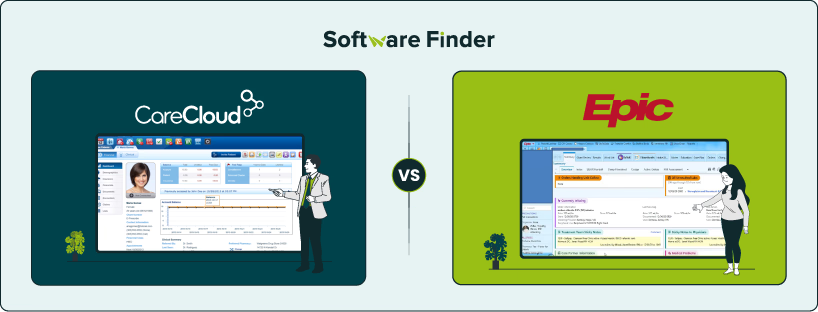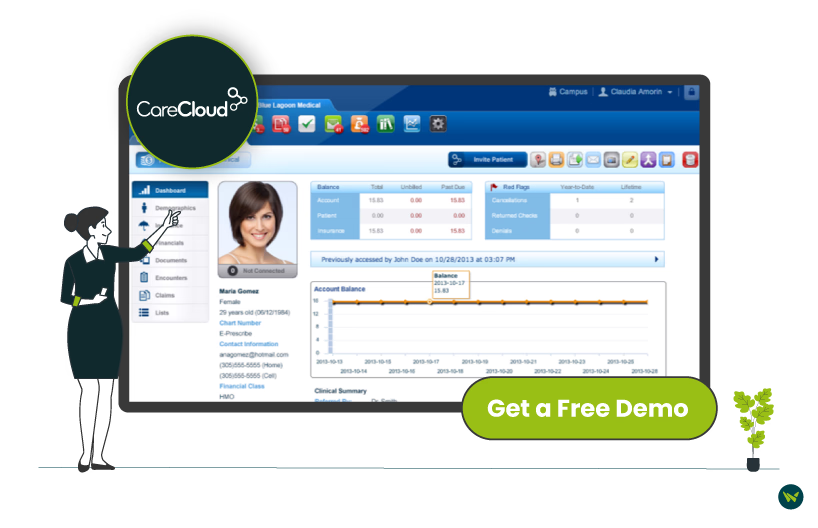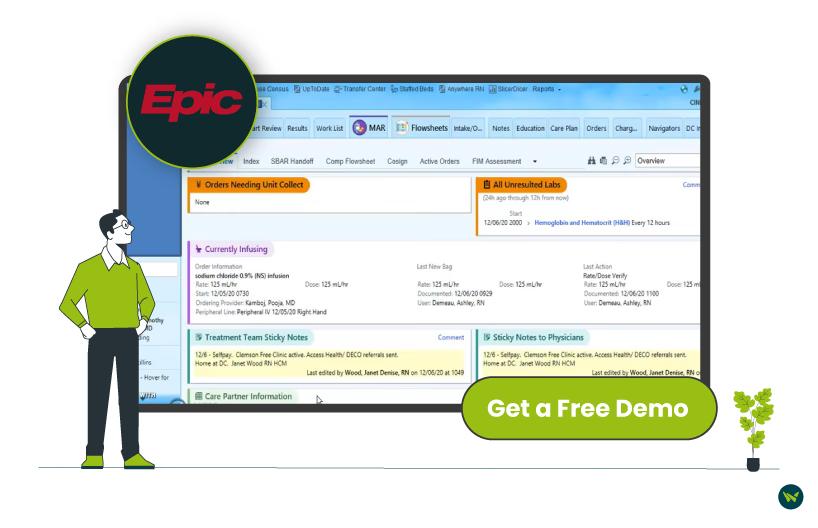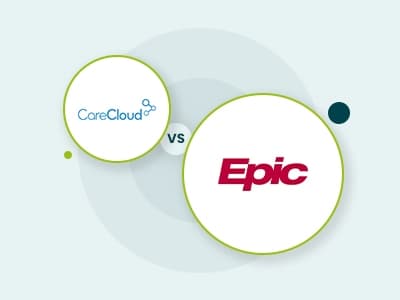
Monthly Price: Starting at $349/provider/month* Best for: Internal Medicine, Family Practice Mobile App: iOS, Android Rating: 3.6/5 | Monthly Price: $1200/provider/month* Best for: Dental, Orthopedics, Cardiology Mobile App: iOS, Android Rating: 4.4/5 |
*Disclaimer: The pricing has been sourced from third-party websites and is subject to change.
Selecting the right EHR system often comes down to how well the software aligns with the structure and scale of your practice. At the same time, functionality and compliance remain essential; the way a solution adapts to different care models, patient volumes, and organizational workflows can significantly influence long-term outcomes.
CareCloud and Epic, in this manner, are two well-established platforms that reflect distinct approaches to electronic health records (EHRs). CareCloud is designed to increase revenue to support growing medical practices. In comparison, Epic is built to serve enterprise-level health systems with deeply integrated capabilities across the care continuum.
This comparison provides a detailed look at CareCloud vs Epic, outlining their key functionalities, user experiences, and pricing. Whether you are seeking flexibility for a mid-sized clinic or an efficient system for a large health network, understanding the strengths of each software will help you make an informed decision.

CareCloud EHR is a comprehensive cloud-based platform tailored for practices of all sizes. It offers a suite of various tools designed to increase revenue, reduce administrative tasks, and improve patient care. It integrates solutions for clinical documentation, revenue cycle management (RCM), practice operations, and patient engagement. CareCloud also puts emphasis on usability through its intuitive interface and supports seamless interoperability through real-time data exchange with labs, pharmacies, and healthcare systems.

On the other hand, Epic is an electronic medical records (EMR) solution designed for large healthcare systems, hospitals, and medical centers. According to the latest data, Epic System Corporation holds the largest share among EHR vendors in the US with 28.21% of the market. It manages patient data, streamlines workflows, and enhances the operational efficiency of healthcare organizations. Epic EMR supports deep interoperability across care settings and delivers precision tools for predictive analytics and specialty-specific workflows.
Feature | CareCloud | Epic |
Practice Management | ✓ | ✗ |
Revenue Cycle Management | ✓ | ✓ |
Voice Recognition | ✓ | ✓ |
Interoperability | ✓ | ✓ |
Telehealth | ✓ | ✓ |
AI-Capabilities | ✓ | ✓ |
Integrated Clearinghouse | ✓ | ✗ |
CareCloud | Epic |
Pros: Easy to use, seamless navigation User-friendly drag-and-drop patient check-in Responsive customer support Cons: Limited note templating flexibility Inflexible recurring appointment management | Pros: Allows easy customization of the dashboard and reports Streamlined navigation with annual upgrades Unified access to patient records Cons: May have limited flexibility in SOAP templates Occasional file attachment issues |


CareCloud has a transparent pricing model with three plans, each consisting of various features while catering to different types of organizational needs. This includes:
- CareCloud Central – $349/provider/month
- CareCloud Complete – $629/provider/month
- CareCloud Concierge – 3-7% of practice collections
Disclaimer: The pricing has been sourced from third-party websites and is subject to change.
However, Epic follows a flexible pricing model, where the pricing starts from $1,200/provider/month. It is tailored to the number of users and the requirements of a healthcare organization. The overall cost may depend on various factors such as features, integration options, specialty size, and implementation process. This flexibility ensures that practices can scale up accordingly.
Disclaimer: The pricing has been sourced from third-party websites and is subject to change.
Overall, CareCloud offers a more straightforward pricing structure with an affordable starting point. But if you are looking for an EHR with a flexible approach towards plans, then Epic might be a good choice for you.
Users highlight different strengths and weaknesses of CareCloud and Epic.
CareCloud is appreciated by many users for its intuitive design and patient-facing tools. Numerous healthcare professionals have praised it for its simple interface, particularly in areas such as patient check-in and scheduling. One reviewer has stated that switching to CareCloud has increased their workflow productivity, while the others have commended its responsive customer support.
However, some users have reported occasional challenges with appointment management, particularly around modifying or deleting recurring appointments. Others have noted that the platform offers limited flexibility when it comes to customizing clinical templates.
Epic, on the other hand, is widely recognized for its enterprise-grade capabilities and unified architecture. Users frequently praise its extensive interoperability, smooth transition between inpatient and outpatient care, and its ability to centralize clinical documentation. While appreciating its dot phrasing, one certified clinical research coordinator states.
“The best feature, I think, is the depth of the 'dot phrases,’ they cut your note-taking time into a fraction. The customer support is wonderful, quick, helpful, and efficient.”
On the downside, Epic is often reported to have limited flexibility in SOAP templates and issues with file attachment on the system. Other users have raised concerns regarding excessive clicks to navigate from one feature to another.
Choosing between CareCloud and Epic comes down to understanding the scale and demand of your healthcare operations. CareCloud is better suited for small to large-sized practices seeking a user-friendly platform with transparent pricing, built-in revenue tools, and efficient front-office solutions. It offers features such as Breeze, cirrusAI for patient engagement, and efficient documentation.
Whereas Epic is designed for large health organizations. It offers a comprehensive interoperability framework, powerful AI tools, and a deeply integrated patient experience through MyChart.
Ultimately, the choice depends on your practice size, budget, and operational goals.
